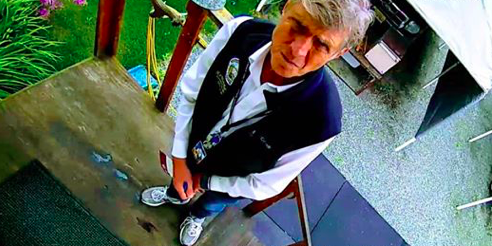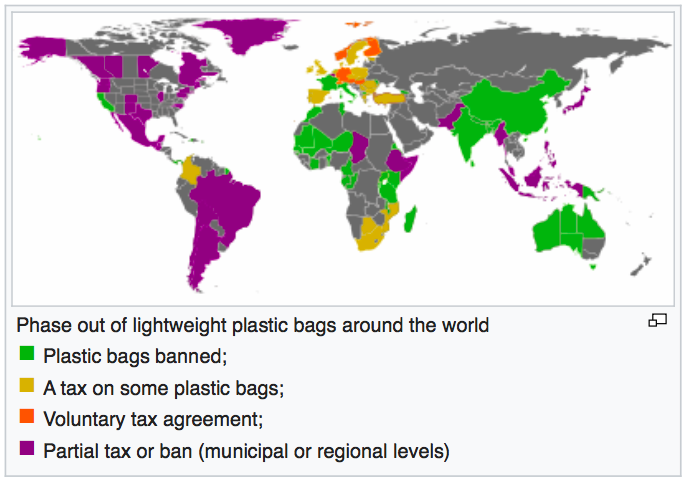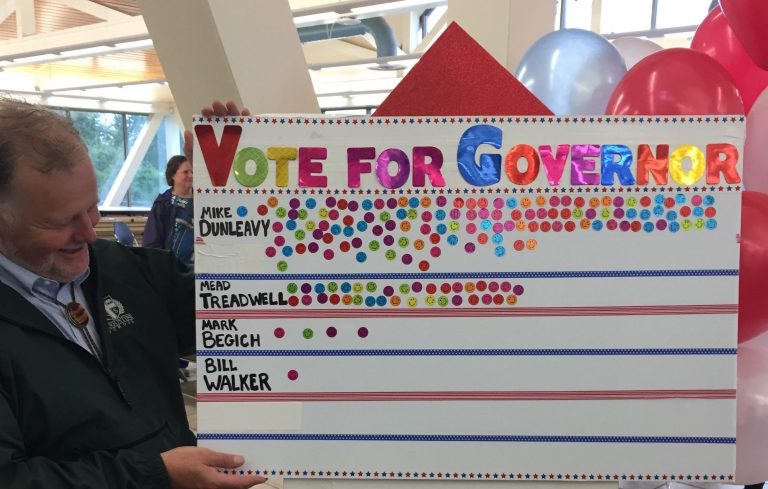ALASKA COULD BE FIRST STATE WITH CARBON TAX
The first several dozen pages of the Climate Action Leadership Team draft report, dated Friday, July 27, is a difficult read. It’s a string of vague, long-winded suggestions for actions the State of Alaska should take in response to a changing climate, without really saying much in precise, deliverable terms.
An example is Action #2.3C, and 2.3D:
“Develop and implement mechanisms that bridge Western science and Indigenous Knowledge in the co-production of knowledge, enhance ecosystem awareness, minimize negative impacts, and strengthen resource management.”
“Assess State response options for threatened ecosystems, including reviewing harvest planning or identifying innovative solutions.”
It’s enough to make your eyes bleed.
It’s not until the last few pages that the report finally gets down to specifics that will require vast resources, taxes, and input from Alaskans. There’s extensive talk about environmental curriculum in the schools, which is a testy subject, since not everyone agrees on the science. But there are other suggestions, too, that will be the subject of robust debate:
“Build a commuter rail system in Southcentral to service the Mat-Su, Anchorage, and Girdwood.”
“Those Alaskans who work along the railroad tracks at JBER, downtown Anchorage, Anchorage International Airport and the Dimond Center already provide more than enough people to give a pilot program a start,” the report posits.
“The State should create and support an active statewide Natural Resource and Environmental Literacy Leadership Council, comprising professionals from school districts, natural resource agencies and industries, tribal organizations and Native corporations, educational nonprofit organizations, and outdoor recreation organizations.”
“The State should create and support school or school district liaisons to facilitate the integration of the plan at the local level; support a paid coordinator who has the resources and flexibility necessary to provide assistance in plan implementation to the diverse stakeholders involved; and initiate a mechanism for periodic review and updating of the 2013 the “Alaska Natural Resource and Environmental Literacy Plan “ to ensure on-going progress.”
“Establish a Green Bank to develop long-term state-led financing of renewable energy and energy efficiency.”
“Develop pathways for carbon revenue generation and a carbon pricing mechanism.”
There it is: The carbon tax, the motherlode of taxes.
“The State should implement a revenue positive carbon tax for Alaska, not a revenue neutral tax like British Columbia’s that provides dividends to compensate citizens for the increased price of carbon- based fuels. The revenues from a carbon tax could be used to fund a state green bank to loan money for energy efficiency and renewable energy (see section 4.2B above) as well as many of the programs recommended here.
“DOR could levy and collect the tax. Constitutionally, those revenues would likely have to then go to the state’s general fund, from which the Alaska State Legislature could appropriate dollars for the Green Bank and other programs.”
Translation: raise taxes on Alaska’s oil and gas industry in order to fund a grab-bag of poorly defined green initiatives.
[Read the entire draft report here.]
No state has yet implemented a carbon tax. A measure to implement one in Washington was defeated by voters in 2016.
The public comment period for the Draft Alaska Climate Change Policy is now closed.
MEETINGS SET FOR THIS WEEK
The Climate Action for Alaska Leadership Team meets on Thursday from 8 am to 4:30 pm in Room 307 of the Consortium Library on the University of Alaska Anchorage campus.
On the agenda is the report, which was closely held until about two weeks ago, when it was posted in the public notice section of the State of Alaska’s web site. The meeting is open for public observation. The teleconference number for public listening is 800-698-1231. (There is no access code.)
On Friday, the team also posted its recommended State policy, which can be viewed here.
YOUNG LEADERS’ DIALOGUE
In addition to The Aug. 2 meeting, the Climate Action Leadership Team is hosting a Young Leaders’ Dialogue on Climate Change from 8 am to 4:30 pm on Wednesday, Aug. 1.
Participants will hear from the CALT and invited speakers, engage in small group discussions, and work toward a statement of action that builds from the draft state climate strategy.
Youth participation is by invitation only; however, members of the public are allowed to observe. The meeting will take place in Room 307 of the Consortium Library on the University of Alaska Anchorage campus.





















